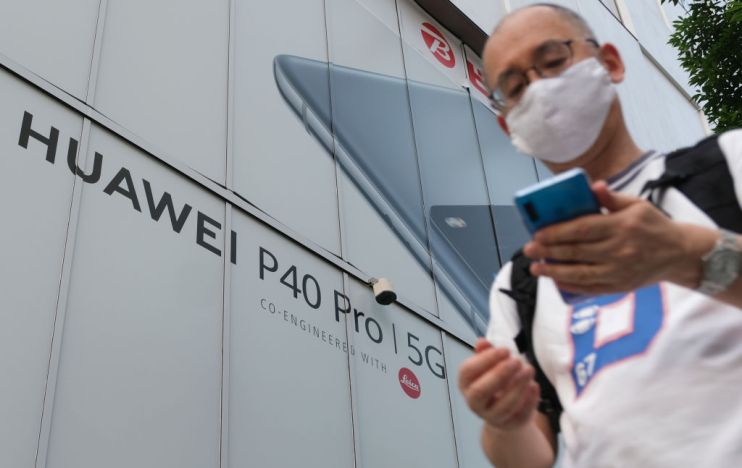Britain enters talks with Japan to fill Huawei vacuum as trade deal deadline looms

The British government has entered talks with Japan to help build the UK’s 5G infrastructure after it last week banned Huawei technology from the network over national security concerns.
British officials held talks with their counterparts in Tokyo last Thursday about the future of the UK’s 5G networks, according to Japanese newspaper Nikkei, with businesses NEC and Fujitsu reportedly being considered as potential vendors of vital 5G equipment.
It comes as the government last week announced it will introduce a ban on new Huawei products from the UK’s 5G network from next year, and ordered all existing Huawei kit to be stripped from British networks by 2027 in a major U-turn.
The decision followed an emergency review carried out by the National Cyber Security Centre (NCSC) earlier this month into fresh US sanctions on Huawei, which concluded that restrictions on its use of American equipment had shifted the UK’s “risk calculations” regarding the Chinese firm.
Prime Minister Boris Johnson last week told The Sunday Telegraph that the government will now seek to work with allied nations in its pursuit of alternative suppliers of 5G equipment.
“Let’s start doing some of this stuff ourselves, working with … like minded countries, and getting the stuff installed,” he said. “The potential is enormous, whether it’s 5G or full fibre or gigabit or superfast broadband, the UK can really excel in all those.”
It comes as Japan last month issued the UK with a strict deadline to conclude post-Brexit trade negotiations.
Hiroshi Matsuura, Japan’s chief negotiator, told the Financial Times that the shortage of time meant that “both sides will have to limit their ambitions”.
“To avoid a gap in January, we must pass this in the autumn session of the Diet [the Japanese parliament],” said Matsuura. “That means we must complete negotiations by the end of July.”
The UK’s pivot towards Japan suggests the UK will seek to bolster its trade relations with non-EU member countries as Britain edges towards the transition period deadline.
Three companies — Huawei, Ericsson, and Nokia — control nearly 80 per cent of the global 5G base station market, while Japan’s NEC and Fujitsu control less than one per cent.
However, it is said that the Japanese government has already announced it will invest ¥70bn (£520m) to support companies such as NEC to develop base station equipment and backbone networks to expand the country’s 5G capabilities.
A spokesperson for the Department for Digital, Culture, Media and Sport today said the government will push ahead with plans to diversify the UK’s 5G infrastructure.
The spokesperson told City A.M: “We are speaking with a range of vendors and suppliers, and are looking at both creating alternative suppliers for 5G equipment and incentivising existing suppliers to increase supply.”
It comes as culture secretary Oliver Dowden last week said Britain was working with its allies to foster more powerful rivals to Huawei, naming firms from Finland, Sweden, South Korea and Japan.
Swedish telecoms firm Ericsson and Finland’s Nokia subsequently said they were ready to scoop up the market share left by Huawei’s exile from the UK.
Nokia chief executive Cormac Whelan said: “Nokia has installed in excess of 5m base stations for mobile networks worldwide, and has a global manufacturing footprint with production in 31 locations.
“We have the capacity and expertise to replace all of the Huawei equipment in the UK’s networks at scale and speed, and are ready to step up to support the implementation of the UK government decision with minimal impact on the people using our customers’ networks.”
Swedish telecoms giant Ericsson also welcomed the government’s decision to ban Huawei equipment from the UK, adding that the move stubbed out “uncertainty” surrounding the UK’s 5G plans.
Before the Open: Get the jump on the markets with our early morning newsletter